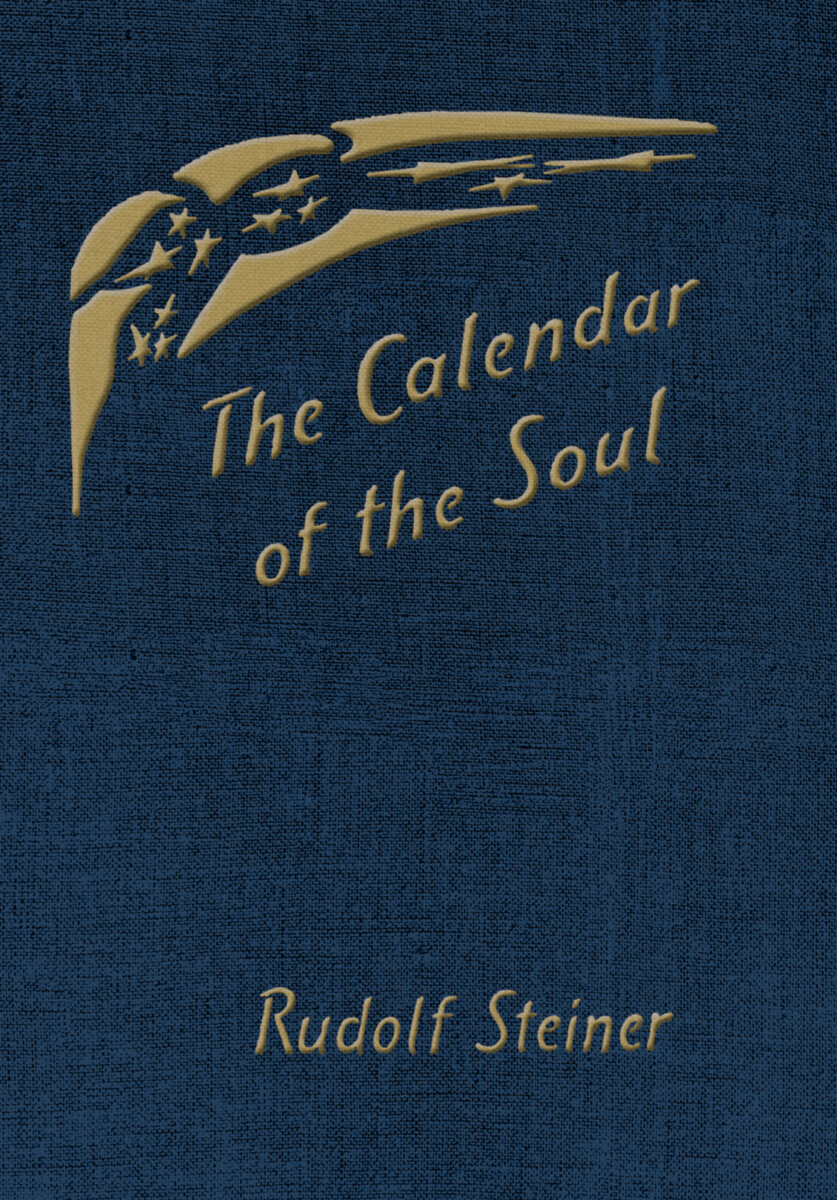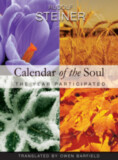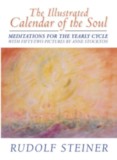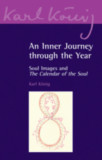The Calendar of the Soul
(CW 40)
Introduction by Hans Pusch
Translated by Hans Pusch and Ruth Pusch
Revised by Ruth Pusch
- Publisher
SteinerBooks - Published
11th July 2023 - ISBN 9781621483304
- Language English
- Pages 64 pp.
- Size 4" x 5.5"
Written 1912 (CW 40)
“You will find meditative verses for the individual weeks of the year. You should take these meditations quite particularly into your hearts, for they contain what can make the soul alive and what really corresponds to a living relationship of the soul forces to the forces of the macrocosm.” — Rudolf Steiner
Rudolf Steiner's collection of fifty-two meditative verses—presented here in both English and German—were first published in 1925, shortly after Steiner's death. These verses, representing the fifty-two weeks of the year, begin with Easter week and offer thoughts that help one find a deeper relationship with the spiritual forces at work throughout the year.
Each verse in this volume appears alongside the corresponding verse for the week that represents a kind of opposite, or "compensating," force during the year.
This durable, pocket-size hardcover volume includes a short introduction by Hans Pusch, describing a unique and useful way to approach and use The Calendar of the Soul.
The Calendar of the Soul is a translation from German of “Anthroposophischer Seelenkalender,” in Wahrspruchworte (GA 40).
Rudolf Steiner
Rudolf Steiner (b. Rudolf Joseph Lorenz Steiner, 1861–1925) was born in the small village of Kraljevec, Austro-Hungarian Empire (now in Croatia), where he grew up. As a young man, he lived in Weimar and Berlin, where he became a well-published scientific, literary, and philosophical scholar, known especially for his work with Goethe’s scientific writings. Steiner termed his spiritual philosophy anthroposophy, meaning “wisdom of the human being.” As an exceptionally developed seer, he based his work on direct knowledge and perception of spiritual dimensions. He initiated a modern, universal “spiritual science” that is accessible to anyone willing to exercise clear and unbiased thinking. From his spiritual investigations, Steiner provided suggestions for the renewal of numerous activities, including education (general and for special needs), agriculture, medicine, economics, architecture, science, philosophy, Christianity, and the arts. There are currently thousands of schools, clinics, farms, and initiatives in other fields that involve practical work based on the principles Steiner developed. His many published works feature his research into the spiritual nature of human beings, the evolution of the world and humanity, and methods for personal development. He wrote some thirty books and delivered more than six thousand lectures throughout much of Europe. In 1924, Steiner founded the General Anthroposophical Society, which today has branches around the world.







